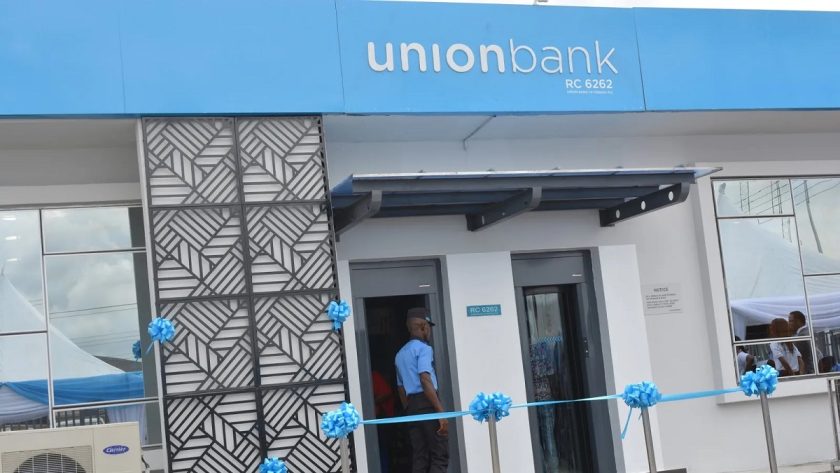Union Bank of Nigeria Ratings Affirm Despite Naira Devaluation
Fitch Ratings has affirmed Union Bank of Nigeria PLC’s Long-Term Issuer Default Rating (IDR) at ‘B-‘, its Viability Rating at ‘b-‘ and its National Long-Term Rating at ‘BBB(nga)’ despite a sharp devaluation of the Nigerian naira.
The affirmation reflects Fitch’s view that UBN will remain compliant with its regulatory minimum capital adequacy ratio (CAR) requirement in the near term despite the sharp devaluation, with sufficient buffer and pre-impairment profit to accommodate the second-order economic effects on loan quality and to restore compliance, if necessary.
The official exchange rate depreciated sharply on 14 June following the Central Bank of Nigeria’s (CBN) decision to unify its multiple exchange-rate windows and allow the naira to trade at a market-determined rate.
The I&E window closed at 776 to 1 US dollar on 21 June, representing a depreciation of 62% since 13 June 2023 and 70% since end-2022.
The move away from a longstanding managed exchange rate regime is intended to restore capital inflows and reduce foreign-currency (FC) shortages that have plagued the Nigerian economy in recent years.
President Tinubu has implemented vital reforms faster than Fitch had expected, including removing the fuel subsidy, within weeks of his inauguration. These reforms are positive for the sovereign’s credit profile but pose near-term macroeconomic challenges.
A large proportion of economic activity was already influenced by the parallel market exchange rate, which had traded over 700 naira to the US dollar for most of the past year, reducing the inflationary impact of the recent devaluation of the official exchange rate.
However, the devaluation and fuel subsidy removal will add to existing inflationary pressures, including the price of fuel, and increase the risk of social unrest. Fitch expects the banking sector’s impaired loan ratios to increase in the near term faster following the devaluation and fuel subsidy removal as borrowers contend with higher inflation and interest rates.
Foreign currency lending standards have tightened recently, influenced by a CBN directive prohibiting foreign currency loans to borrowers without similar revenues and some banks restructuring FCY loans to naira.
Some legacy FCY loans to borrowers without FC revenues remain and such loans are expected to weaken in the near term. Analysts’ assessment of UBN’s asset quality considers its small loan book relative to its assets, as it holds large cash reserves at the CBN and sovereign fixed-income securities.
Large Stage 2 loans which settled at 25% of gross loans in 2022 are noted to be a vulnerability for UBN, as they are predominantly foreign currency denominated and will inflate after naira depreciation.
However, Stage 2 loans are viewed by Fitch as only a moderate downside risk for regulatory CAR, as the bank has a forbearance from the CBN until end-2024, which allows only a modest provisioning of these exposures for the calculation of regulatory capital ratios.
The devaluation will inflate UBN’s FC-denominated risk-weighted assets (RWAs) in naira terms and exert downward pressure on its capital ratios. Fitch believes the direct impact of the recent devaluation on capital ratios will be manageable due to its small FC-denominated RWAs and long net FC position, which will lead to revaluation gains and help to cushion the impact of inflated RWAs on capital ratios.
“We expect UBN will maintain sufficient capital buffers and pre-impairment operating profit to accommodate the second-order economic effects of the devaluation on loan quality and increased risks to capital from inflated FC-denominated problem loans”, Fitch stated.
Union Bank of Nigeria Ratings Affirm Despite Naira Devaluation

